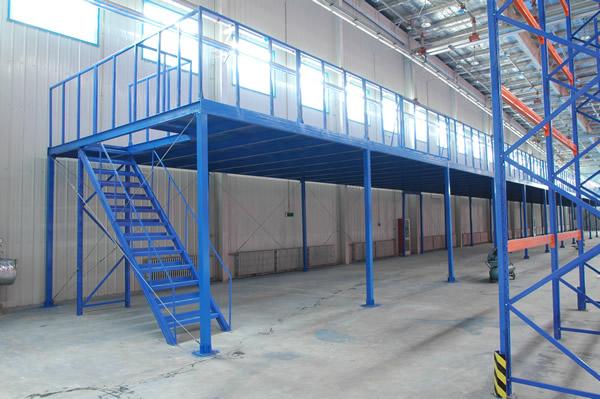In the fast-paced world of logistics and inventory management, space is money. Static storage solutions, while reliable, often create inefficiencies in modern, dynamic warehouses. This is where rolling warehouse shelving comes into play. Also known as mobile aisle shelving, this system is revolutionizing how businesses utilize their floor space, offering a blend of high density and unparalleled accessibility. If you're dealing with shrinking square footage or growing inventory, understanding this system is crucial. This article delves into the mechanics, advantages, and selection criteria for implementing a rolling warehouse shelving system effectively.

At its core, rolling warehouse shelving is a high-density storage system where rows of shelving units are mounted on carriages that move along rails embedded in the floor. Instead of having permanent aisles between every row, only one aisle is created at a time. When you need access to a specific row, you simply move the adjacent rows to open up an aisle.
Think of it like a sliding door for your entire storage archive. This design eliminates multiple fixed aisles, converting that wasted space into additional storage capacity. It’s a simple yet profoundly effective concept for maximizing warehouse storage density.
Why are so many operations shifting towards this solution? The benefits are tangible and directly impact the bottom line.
Massive Space Savings (Up to 80% More Storage)
This is the most significant advantage. By eliminating multiple fixed aisles, a rolling warehouse shelving system can effectively double or even triple your storage capacity within the same floor area. For operations in expensive urban industrial zones or those simply outgrowing their current facility, this is a game-changer. The space you save can be used for other productive activities or to delay a costly move to a larger building.
Enhanced Security and Controlled Access
A mobile shelving system can be designed to lock in a closed position. This means that when not in use, your inventory is essentially sealed off, reducing the risk of theft and unauthorized access. This is particularly beneficial for storing high-value items, sensitive documents, or regulated products. The physical barrier created by the closed rows acts as a strong deterrent.
Improved Organizational Efficiency
With a more compact storage footprint, items are located closer together. This reduces the time workers spend walking between aisles, leading to faster picking and restocking times. Furthermore, these systems force a higher level of organization, as every item must have a designated location within the movable rows. This contributes to better overall warehouse organization and inventory accuracy.
Structural Durability and Long-Term Value
High-quality rolling warehouse shelving is engineered to bear immense loads. The carriages and rails are built to support fully laden shelves, ensuring stability and safety. While the initial investment might be higher than static shelving, the long-term value derived from space savings, improved efficiency, and durability often results in a strong return on investment (ROI).
Ergonomic and Worker-Friendly Options
Modern systems are designed with the user in mind. They can be equipped with manual crank handles, mechanical assist systems, or fully powered electronic drives that require minimal effort to move. Safety features like floor-based safety switches, anti-tilt mechanisms, and visual and audible warnings are standard on most professional systems, making them safe and easy to operate.

While powerful, mobile aisle systems are not a one-size-fits-all solution. They are ideally suited for specific scenarios:
High-Value, Lower-Turnover Inventory: Perfect for storing items that are important but not accessed constantly. Think archival records, spare parts, seasonal products, or valuable tools.
Space-Constrained Facilities: If you are literally running out of floor space, this is one of the most effective solutions.
Environments Requiring Security: As mentioned, the inherent security of a closed system is a major benefit.
However, they might be less suitable for high-speed, high-turnover environments where multiple people need simultaneous access to different product lines, as the system only allows access to one aisle at a time.
Investing in a rolling warehouse shelving system is a significant decision. Here’s a step-by-step approach to ensure you select the right one.
Conduct a Thorough Needs Analysis
Before looking at products, look at your inventory. What are the dimensions and weights of your typical stored items? What is your inventory turnover rate? How often do you need access to specific SKUs? This analysis will inform the shelving design, weight capacity, and mobility mechanism.
Evaluate Your Space and Floor
A professional site assessment is critical. The system requires a level and structurally sound floor to support the immense weight and to ensure the rails are installed correctly. Measure your available space precisely, including ceiling height, to maximize vertical storage.
Choose the Right Mobility Mechanism
Manual Systems: Operated with a hand crank. Most cost-effective and suitable for lighter loads and smaller systems.
Mechanical Assist: Uses a gear reduction system to make moving heavily laden shelves much easier.
Electric/Powered Systems: The push of a button moves the entire row. Essential for very heavy loads and large systems, offering the highest level of user convenience.
Prioritize Safety Features
Never compromise on safety. Ensure the system you choose includes features like automatic safety sweeps at the base that stop movement if an obstruction is detected, and panic bars that allow easy exit from an aisle.
Plan for Future Growth
A good rolling warehouse shelving system is modular and scalable. Consider your business's growth trajectory and choose a supplier and system that can be easily expanded or reconfigured as your needs evolve.
Understanding the Cost Factors
The cost of a rolling warehouse shelving system is not a single number. It depends on:
System Size and Height: More bays and greater height increase cost.
Weight Capacity: Heavier-duty components for higher capacities cost more.
Mobility Type: Electric systems are more expensive than manual ones.
Installation Complexity: Floor condition and site preparation can affect the final price.
While the upfront cost is higher than simple shelving, the effective cost per square foot of storage space is often significantly lower, making it a smart financial decision for many businesses.
Q1: How much space can I actually save with rolling warehouse shelving?
A1: The amount of space saved depends on your current layout, but it's common to see a 50% to 80% increase in storage capacity. This is achieved by replacing multiple permanent aisles with a single, movable aisle. In a typical setup with five static aisles, switching to a mobile system could reclaim four of those aisles for additional shelving.
Q2: Is the floor in my existing warehouse strong enough to support a mobile shelving system?
A2: This is a critical consideration. Rolling warehouse shelving systems concentrate a great deal of weight onto the rails and the floor beneath. A professional supplier will always conduct a floor survey to assess the slab strength and condition. In some cases, floor reinforcement may be required before installation, which will add to the project cost and timeline.
Q3: What happens if there is a power outage with an electrically powered system?
A3: Reputable electrically powered rolling warehouse shelving systems are designed with manual override capabilities. In the event of a power failure, a backup hand crank or release mechanism is provided to allow operators to move the carriages manually and access all stored items, ensuring business continuity is not disrupted.
Q4: Can rolling shelving be integrated with other storage systems, like pallet racking?
A4: Yes, it is quite common to have a hybrid storage approach. Many facilities use rolling warehouse shelving for smaller, slower-moving items and bulkier pallet racking for fast-moving, palletized goods. A skilled storage solutions provider can design a layout that optimally integrates different systems to maximize the efficiency of your entire operation.
Q5: How difficult is the installation process, and how long does it typically take?
A5: Installation is a specialized job that should always be handled by certified professionals. The complexity and duration depend on the system's size and the site's readiness. For a medium-sized system, the process—which includes rail installation, carriage assembly, and shelving erection—can take anywhere from a few days to a couple of weeks. Disruption to ongoing operations can be minimized with careful planning and phased installation if necessary.
 Wechat
Wechat
 Whatsapp
Whatsapp